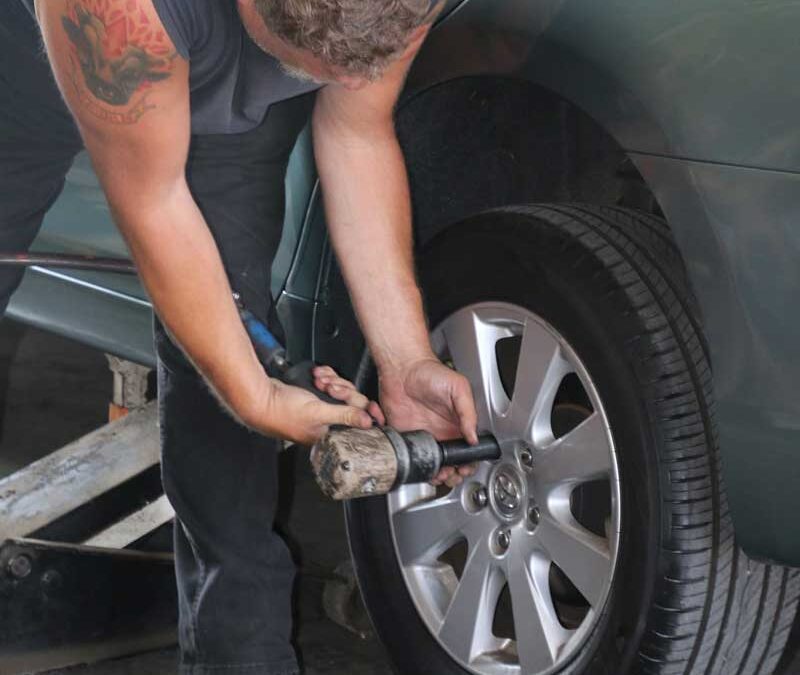A well-maintained vehicle speaks volumes about you as an owner. More importantly, it will not desert you when you need it most. Read on for some great tips!
Engine Oil: To prevent engine deterioration, it is imperative that the engine maintains the amount of oil it is programmed to receive. Negligence in this aspect will lead to a deteriorating engine performance, resulting in falling mileage.
Lights: It is important for the lights to be properly focused, for your own and for the oncoming vehicle’s safety. Travel on low beam so that it does not obstruct your view instead of helping you along.
Tire Pressure: The required amount of air pressure needs to be strictly maintained if your car is to get the right mileage and pick-up.
More automotive maintenance tips…
- Get your vehicle serviced only at authorized automotive service technicians
- Check the engine oil level once every two weeks. Also check the levels of coolant and water in the radiator and battery.
- Always use genuine replacement parts.
- Avoid accelerating and braking abruptly.
- Turn off the engine whenever you expect to wait.
- Drive at a moderate speed.
- Use air-conditioning only when necessary.
- Avoid riding on the clutch pedal, and release the clutch pedal fully while driving.
- Maintain optimum air pressure in your tire to improve mileage.
Preventative Measures
Air Filter: Check it every month. Replace it when it becomes dirty or as part of a tune–up.
Battery: Extreme caution should be taken while handling a battery since it can produce explosive gases. It is advisable not to smoke, create a spark or light a match near a battery. Always wear protective glasses and gloves.
Belts & Hoses: Replace glazed worn or frayed belts. Replace bulging, rotten or brittle hoses and tighten clamps. If a hose looks bad, or feels too soft or too hard, it should be replaced.
Brake Fluid: Check it monthly. First wipe dirt from the brake master cylinder reservoir lid. Pry off the retainer clip and remove the lid or unscrew the plastic lid, depending on which type your vehicle has. If you need fluid, add the improved type and check for possible leaks throughout the system. Do not overfill.
Engine Oil: Check the oil after every fill up. Remove the dipstick, wipe it clean. Insert it fully and remove it again. If it is low, add oil. To maintain peak performance, the oil should be changed every 3,000 miles or 3 months, whichever comes first. Replace the oil filter with every oil change.
Lights: Make sure that all your lights are clean and working, including the brake lights, turn signals and emergency flashers. Keep spare bulbs and fuses in your vehicle.
Oil Filter: To maintain peak performance, change oil every 3 months or 3,000 miles, whichever comes first. Replace the oil filter with every oil change.
Power Steering Fluid: Check the power steering fluid level once per month. Check it by removing the reservoir dipstick. If the level is down, add fluid and inspect the pump and hoses for leaks.
Shock Absorbers: Look for signs of oil seepage on shock absorbers, test shock action by bouncing the car up and down. The car should stop bouncing when you step back. Worn or leaking shocks should be replaced. Always replace shock absorbers in pairs.
Transmission Fluid: Check transmission fluid monthly with engine warm and running, and the parking brake on. Shift to drive, then to park. Remove dipstick, wipe dry, insert it and remove it again. Add the approved type fluid, if needed. Never overfill.
Washer Fluid: Keep the windshield washer fluid reservoir full. Use some of it to clean off the wiper blades. Wiper Blades Inspect the windscreen wiper blades whenever you clean your windshield. Do not wait until the rubber is worn or brittle to replace them. They should be replaced at least once per year, and more often if smearing occurs.
If you have any questions about caring or maintaining your vehicle, please don’t hesitate to contact Dale at All Around Auto Repair (707) 837-0646.


